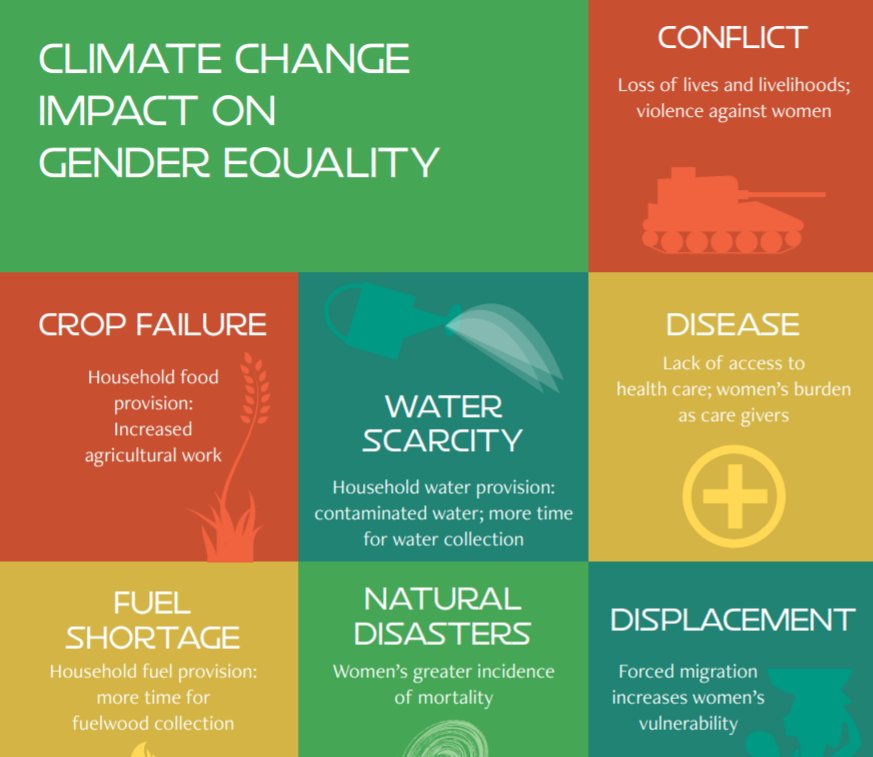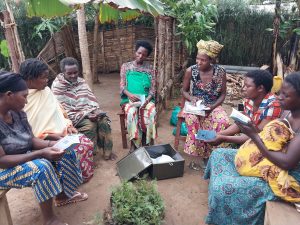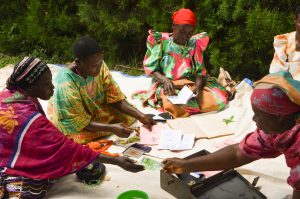Women Hold the Keys to a Thriving World
Mar 7th, 2024 | By admin | Category: Reproductive Rights/Women's RightsBy Suzanne York.
The theme of International Women’s Day 2024 is ‘Invest in Women: Accelerate Progress’, with a focus on addressing economic disempowerment.
Women and girls bear the brunt of so much in the world today, and empowering them through abundant support for health, rights, education, and sustainable livelihoods – especially in the face of changing climates – is critical.
A recent United Nations Food and Agriculture Organization (FAO) report, titled Unjust Climate: Measuring the impacts of climate change on rural poor, women and youth, found that heatwaves and floods affect rural women and men differently, and widen income gap and social disparities. The dataset was from 24 low- and middle-income countries in five world regions that measured the effects of climate change on rural women, youth and people living in poverty.
Gender and Climate Vulnerability
The FAO report underscores how climate disruptions are disproportionately affecting the incomes of rural women, people living in poverty, and older populations, as their capacity to react and adapt to extreme weather events is unequal.
Different types of extreme weather events affect female-headed households in different ways. Floods cause female-headed households to lose off-farm income relative to male-headed households, but do not cause a significant loss in farm income. Conversely, droughts and heat stress lead to a significant relative reduction in the farm incomes of female-headed households.
The authors of Unjust Climate concluded that while heat stress is costly for all rural households, it is significantly more costly for households headed by a woman:
- Heat stress widens the income gap between female-headed and male- headed households by USD 37 billion a year, and floods by USD 16 billion a year.
- Every year, female-headed households experience income losses of 8 percent due to heat stress, and 3 percent due to floods, relative to male-headed households.
- A 1° C increase in long-term average temperatures is associated with a 34 percent reduction in the total incomes of female-headed households, relative to those of male-headed households.
- Each day of extreme high temperature reduces the total value of crops produced by women farmers by 3% relative to men.
As noted by Somini Sengupta, international climate reporter for The New York Times, while women depend on agricultural income, they represent only 12.6 percent of landowners globally, according to estimates by the United Nations Development Program. That means women-headed households are likely to lack access to essential services, like loans, crop insurance and agricultural extension services to help them adapt to climate change.
Empowering Rural Women
Organizations such as Shared Action Africa are working on the ground with women and girls, to address this lack of access to crucial services they need to survive and prosper.
Shared Action Africa (SAA), founded and led by women, actively supports women and girls in refugee settings in Uganda to reconstruct their lives through focused interventions that foster sustainable livelihoods, strengthen climate change resilience, and enhance their sexual and reproductive health and well-being. Evelyn Nassuna, SAA’s Co-Founder and Chief Executive Officer, said they do this because refugee women and girls often face heightened vulnerability due to displacement, loss of homes, separation from families, and exposure to violence and exploitation, and therefore need support to rebuild their lives and regain a sense of normality.
Much of SAA’s work is serving women and girls in the rural Nakivale refugee settlement in southwestern Uganda, who are among the most vulnerable populations and impoverished communities in the country.
They help women form savings groups and teach them about climate smart agriculture, including how to create kitchen gardens, practice communal gardening and tree planting, and improve access to energy efficient cookstoves.
In 2022, SAA supported nearly 600 women in Nakivale, assisting them in establishing both kitchen and communal gardens on which they produced both caloric and nutrition dense foods using climate smart agricultural practices. The sustainable agricultural methods used by the program participants included agroforestry, where trees were integrated with crops on the communal gardens, composting, mulching, contour bunding, and bottle irrigation among others. As a result of using sustainable production techniques, the target beneficiaries increased the yields from both the kitchen and communal gardens.
Through its Refugee Women Energy Efficient Access Program, Shared Action Africa has provided 50 refugee women in Nakivale with energy efficient cookstoves, thereby reducing their dependence on biomass for cooking energy.
Local Communities Know Best
Shared Action Africa understands the needs of Ugandan women, especially women in refugee settlements, and is changing lives via support for sustainable livelihoods, women’s health and climate smart agriculture. As the world recognizes this International Women’s Day, everyone should get behind and back ‘women smart’ integrated solutions for the betterment of communities everywhere.
Per Unjust Climate, “We cannot tackle the challenges of inequality, poverty and hunger separately from our efforts to address the climate crisis. These global challenges are inextricably linked.” [emphasis added]
In the words of SAA’s Evelyn Nassuna “When women have access to quality sexual and reproductive care and a wide range of innovations, they are better equipped to achieve economic empowerment and resilience in the face of climate change. Moreover, women who hold economic power generate benefits not only for themselves but also for their families and communities.”
Suzanne York is Director of Transition Earth.

![[20231116_UNEP_Decade on Ecosystem Restoration_Forest Gardens_Senegal_Todd Brown_1]](http://populationgrowth.org/wp-content/uploads/2024/03/UNEP-tree-planting-photo-300x200.jpeg)


